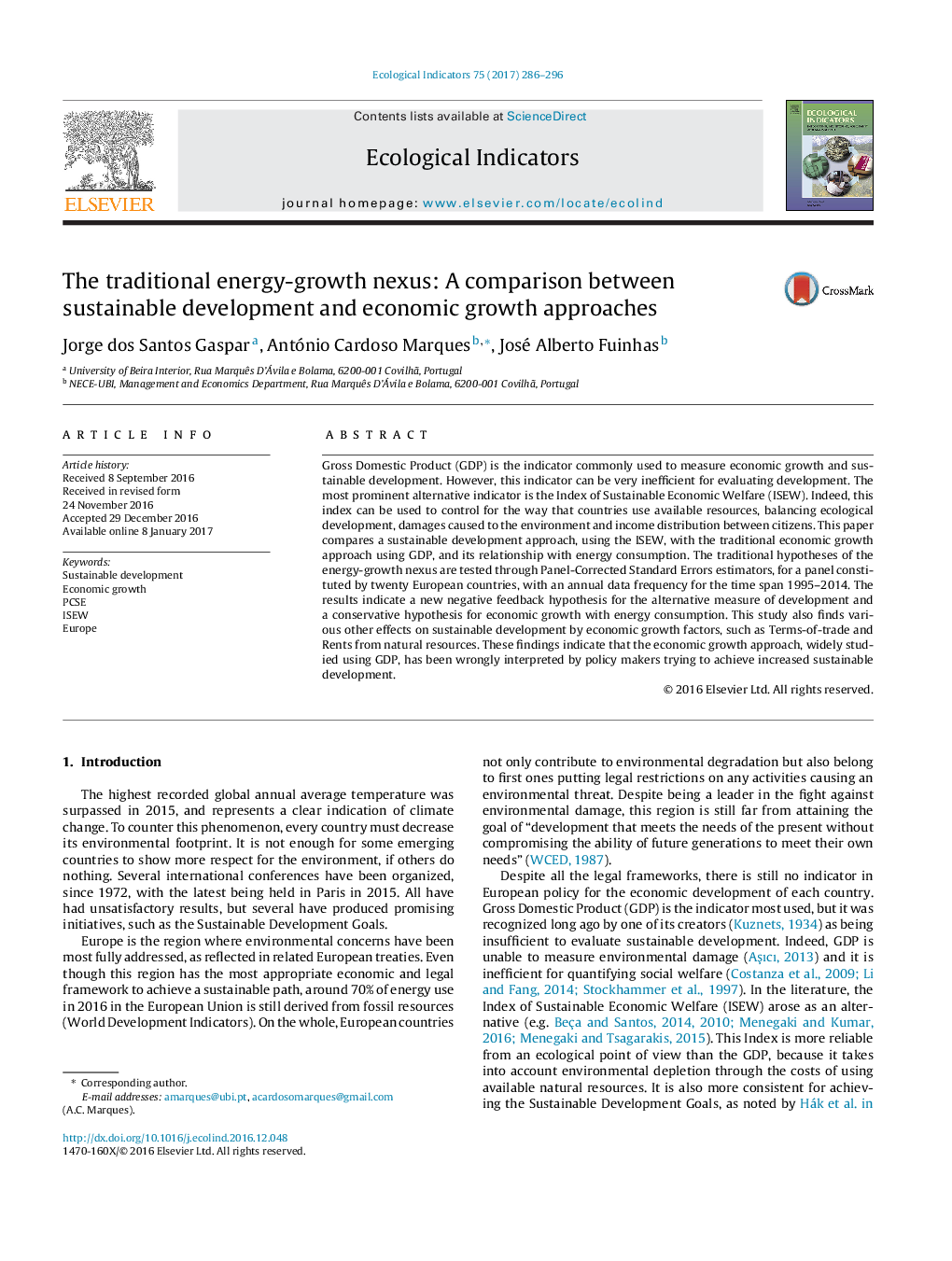| Article ID | Journal | Published Year | Pages | File Type |
|---|---|---|---|---|
| 5741820 | Ecological Indicators | 2017 | 11 Pages |
â¢This paper is focused on the energy consumption-economic growth/sustainable development nexus.â¢It compares the sustainable development (ISEW) and economic growth (GDP) approaches.â¢A panel of 20 European countries, with annual data frequency (1995-2014), was analysed.â¢The results of using the traditional GDP on the nexus are quite different from using the ISEW.â¢Policies focused on GDP could not provoke the desired effects on the sustainable development.
Gross Domestic Product (GDP) is the indicator commonly used to measure economic growth and sustainable development. However, this indicator can be very inefficient for evaluating development. The most prominent alternative indicator is the Index of Sustainable Economic Welfare (ISEW). Indeed, this index can be used to control for the way that countries use available resources, balancing ecological development, damages caused to the environment and income distribution between citizens. This paper compares a sustainable development approach, using the ISEW, with the traditional economic growth approach using GDP, and its relationship with energy consumption. The traditional hypotheses of the energy-growth nexus are tested through Panel-Corrected Standard Errors estimators, for a panel constituted by twenty European countries, with an annual data frequency for the time span 1995-2014. The results indicate a new negative feedback hypothesis for the alternative measure of development and a conservative hypothesis for economic growth with energy consumption. This study also finds various other effects on sustainable development by economic growth factors, such as Terms-of-trade and Rents from natural resources. These findings indicate that the economic growth approach, widely studied using GDP, has been wrongly interpreted by policy makers trying to achieve increased sustainable development.
